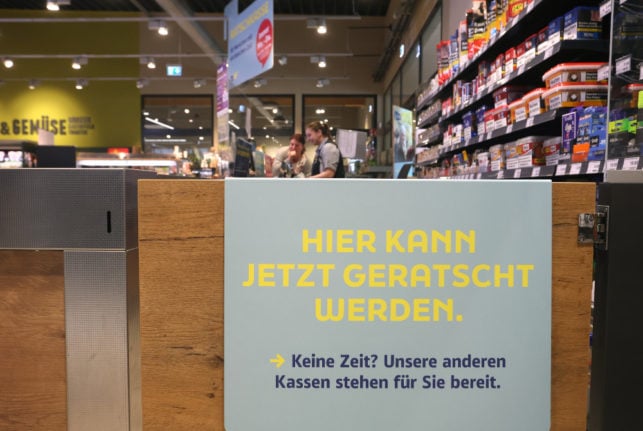The conversation was broadly as follows: “I wasn’t going to bother with being vaccinated. I didn’t like the idea much.”
“Me neither”.
“Anyway, in the end, I thought, oh well, it will make it easier to travel this summer and maybe do other stuff. I’m still unhappy about it. But what can you do?”
While she prepared my dose of AstraZeneca, the nurse – who I know well – told me that there was still a problem locally with the vax-shy very old.
“Some don’t like vaccinations, some don’t like the Covid vaccines, especially if it’s AstraZeneca. But to be honest, many of them just can’t be bothered,” she said. “They live isolated in villages or hamlets which they think the virus will never reach.”
I live in just such a hamlet in the Norman hills – permanent population 7. Three of my neighbours are 80-plus. None have been vaccinated.
“Why bother?” they say “There hasn’t been a single case of Covid in our commune. Not this year, not last year.”
This, as far as I can establish, is true. But there have been many cases in the villages and towns down in the valley. My hamlet is, in effect, a cluster waiting to happen.
So much for anecdotes. Here are some facts.
France is not as vaccine-shy as we thought and the French themselves once had pollsters believe.
A survey suggested last year that under half of the French population – 49 percent – was prepared to accept an anti-Covid vaccination. By last month that had increased to 65 percent, still much lower than other countries.
There is, however, a big difference between what the French say they will do and what they actually do.
The French government’s vaccine drive is now approaching its target of 30 million first doses (nearly 60 percent of the adult population) by June 15th. As of Wednesday night, 29,056,963 people had received a first dose – 55.3 percent of adults. The 30 million target will be reached two or three days early, on Friday or Saturday.
#COVID19 | Le point sur la vaccination en France :
✅ plus de 29 millions de personnes ont reçu une première injection ;
✅ plus de 14 millions de personnes ont reçu une seconde injection.Retrouvez toutes les informations sur la #vaccination sur : https://t.co/YLKlWfNIDk
— Gouvernement (@gouvernementFR) June 10, 2021
There is no reason to believe the campaign is flagging. Appointments are being booked weeks in advance. Younger people have flocked to vaccinodromes, pharmacies and doctors’ and nurses’ surgeries since vaccination was opened to all over-18s last week.
There are still some experts who fear that the hard work is yet to be done: that it will be difficult to bring in enough of the vax-shy or the vax-lazy to reach the kind of vaccination levels needed for “herd immunity” from Covid-19.
What level is that? The experts keep moving the goalposts. Initially the figure was 70 percent, then 80 percent. Some now suggest that 90 percent coverage will be needed to subdue the more virulent variants of Covid now in circulation.
Can France hope to reach such high figures?
The coverage already achieved of older sections of the population suggests that well over 80 percent is feasible. Higher than that may be uncertain – but not just in France.
The wonderful Vaccintracker website gives the small print on vaccine coverage in France by tranches of age.
As of June 6th – last Sunday – French people aged between 75 and 79 were already 87.3 percent first-vaccinated. The figure for 70 to 74 year old was 85.4 percent. For 65 to 69s: 74.4 percent.
Population vaccinée (au 7 juin), par tranches d'âge. L'aire de chaque rond est proportionnelle au nombre d'habitants dans la catégorie d'âge. 💉#Covid19 pic.twitter.com/EXuAE9iwUr
— Nicolas Berrod (@nicolasberrod) June 8, 2021
Significantly, the very old are LESS covered than the pretty old. “Only” 77.1 percent of those aged 80 or more had received one dose. This confirms my Norman anecdotes. Despite the almost 100 percent coverage achieved in care homes, there are a lot of very elderly people in France who don’t fancy, or can’t easily obtain, a vaccination.
The government says that it is working on the problem.
Absolutely loving this new French vaccination ad (via @olivierveran) pic.twitter.com/yvTE3pxDPd
— Evan O’Connell (@evanoconnell) June 9, 2021
They are, in theory, contacting old people individually and urging and helping them to find an appointment. The Vaccintracker figures on age-coverage show an increase day by day in the first-vaccination level of all groups, including the over 80s.
There is no reason to believe that younger French people – whatever they might tell pollsters – will finally prove to be more vax-resistant than the old.
There is certainly a hard core of people in France who refuse all vaxes on health or ideological grounds. A great many others who professed to be anti-vax are now falling into line, probably to simplify their own lives rather than because they accepted that vaccination is in the common good.
On present trends France will have vaccinated 40 million people by mid-July – almost 80 percent of adults. I expect that the vaccine drive will run into the sand and mud of the vax-resistant beyond that point but should, judging by the figures achieved for septuagenarians like me, struggle on into percentages in the mid-to-high 80s.
Will that be enough? We had better hope so.





 Please whitelist us to continue reading.
Please whitelist us to continue reading.
Member comments